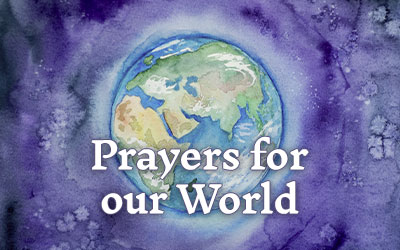Afghanistan: Al-Qaeda still 'heavily embedded' within Taliban, UN official warns

Al-Qaeda is still "heavily embedded" within the Taliban in Afghanistan, in spite of a historic US-Taliban agreement earlier this year, a senior United Nations official has told the BBC.
Earlier this year, the US signed an agreement with the Taliban committing to withdrawing all American forces from the country by next summer if the Taliban ensured groups including al-Qaeda were not able to use Afghan territory to plot international attacks.
But Edmund Fitton-Brown, co-ordinator of the UN's Islamic State, Al-Qaeda and Taliban Monitoring Team, has told the BBC that the Taliban promised al-Qaeda in the run-up to the US agreement that the two groups would remain allies.
"The Taliban were talking regularly and at a high level with al-Qaeda and reassuring them that they would honour their historic ties," Mr Fitton-Brown said.
He said the relationship between al-Qaeda and the Taliban was "not substantively" changed by the deal struck with the US. "Al-Qaeda are heavily embedded with the Taliban and they do a good deal of military action and training action with the Taliban, and that has not changed," he said.
Eliminating the threat from al-Qaeda and overthrowing the Taliban regime that had harboured them was the original basis for the US invasion of Afghanistan, following the 9/11 attacks. At the time, President George W Bush vowed to hunt the militants until there was "no place to run, or hide, or rest".
Al-Qaeda's strength and ability to strike the West has significantly diminished over the past decade, but its leader Ayman al-Zawahiri is believed to still be based in Afghanistan along with a number of other senior figures in the group. The Afghan intelligence services announced on Saturday they had killed Husam Abd al-Rauf, a high ranking Egyptian al-Qaeda member, in an operation in Ghazni province. Mr Fitton-Brown told the BBC that despite its lower profile, al-Qaeda remained "resilient" and "dangerous".
How the Taliban's relationship with al-Qaeda develops could determine the future of the Afghan peace process. The Taliban's commitments on international terrorism are the most tangible demands that need to be met as part of the US-Taliban withdrawal agreement. However, the issue is likely to prove divisive, with Taliban hardliners thought to oppose any measures cutting their links with al-Qaeda.
It is feared the Afghan peace process is in any case losing its momentum. Despite the beginning of long delayed negotiations between the Taliban and an Afghan government-led delegation last month in Qatar, violence has continued and even intensified in recent weeks.
The negotiations have stalled amid attempts to resolve preliminary issues, with major issues such as a ceasefire or power-sharing arrangement yet to be discussed. There are fears that if US troops are withdrawn next year, before an agreement has been reached, the violence could intensify and the Taliban push for a military victory.
Mr Fitton-Brown warned that, were the peace process to fall apart, al-Qaeda and the Islamic State group could attempt to further exploit "ungoverned space" in Afghanistan.
"Both of those groups have an avowed aspiration to pose an international threat," he said.
More at: https://www.bbc.co.uk/news/world-asia-54711452
Extracts from an email received from a humanitarian organization serving the people of Afghanistan:
Dear Brothers and Sisters,
While the Taliban are in Doha now since one month to presumable talk about peace with high officials of the Afghan government, the fighting continues unabated and yesterday the Afghan Ministry of Interior (MoI) reported that 180 civilians have been killed and 375 have been wounded over the last month in a spate of violence across Afghanistan.
Many Afghans were expecting that a cease fire would be announced or fighting would slow down, but the Taliban have increased their attacks on the government, Army, police and civilians throughout the country.
“Where is peace? Which peace? While we are going to Doha for talks, you witness a wave of suicide attacks, there are explosions, soldiers are being killed - we do not need this kind of peace,” said Najibullah Kabuli.
Fighting was also reported close to the capital and to the city where our team from the North East is based and also in the west of the country fighting has increased and many other parts. The Taliban try to get into a stronger position as they negotiate with the government.
Please pray that the Taliban would be pushed back and defeated and they would not make any further success!
Please continue to pray also for the so-called peace talks in Doha/Qatar.
The Taliban will definitely try to get a big influence on the present government which could really change the society again into strict Sharia rules.
Please continue to pray for all our foreign and local workers and brothers and sisters for their protection.

